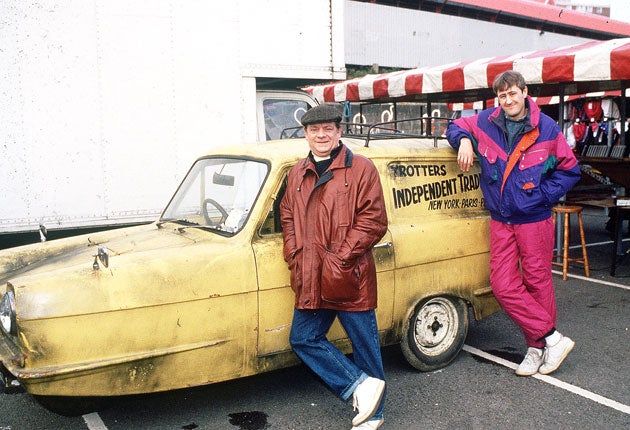The Independent's journalism is supported by our readers. When you purchase through links on our site, we may earn commission.
Our government seems to think a ‘distinctively British’ programme simply means white characters
If we really want ‘distinctively British’ programmes we need to think less about what is on our screens and more about who is behind the camera


Your support helps us to tell the story
From reproductive rights to climate change to Big Tech, The Independent is on the ground when the story is developing. Whether it's investigating the financials of Elon Musk's pro-Trump PAC or producing our latest documentary, 'The A Word', which shines a light on the American women fighting for reproductive rights, we know how important it is to parse out the facts from the messaging.
At such a critical moment in US history, we need reporters on the ground. Your donation allows us to keep sending journalists to speak to both sides of the story.
The Independent is trusted by Americans across the entire political spectrum. And unlike many other quality news outlets, we choose not to lock Americans out of our reporting and analysis with paywalls. We believe quality journalism should be available to everyone, paid for by those who can afford it.
Your support makes all the difference.British broadcasters have a problem. They are being outgunned, out-watched and out-spent by large American streaming services such as Netflix, Disney and Amazon. According to UK government ministers, this is making us all a little bit “too American” and destroying our great British culture.
The solution? Well, yesterday the now former media minister, John Whittingdale, announced that in the future, UK’s public service broadcasters (BBC, ITV, Channel 4 and Channel 5) will have a legal requirement to produce “distinctively British” programmes. He then went on to list the type of programmes which would currently meet such a requirement. They included: Dr Who, Downton Abbey, The Great British Bake Off, Bodyguard, Fleabag, Derry Girls and Only Fools and Horses.
Most people I spoke to in the media industry noticed that, while they are all great programmes, they seemed to have one thing in common: overwhelmingly white lead characters and presenters. Cue Twitter rants about what it means to be British and trying to define British identity.
The whole debate reminded me of a meeting I was in 10 years ago as head of BBC Scotland current affairs. A team from London had come up to Glasgow to try and define what made a “Scottish programme”. The team from London wanted to discuss “Scottish culture”; my colleagues in Scotland wanted to discuss “editorial control”.
The meeting came to a few conclusions:
1. Scottish programmes are different from London productions because they are made in Scotland
2. There is no easy quantifiable difference. Living in Scotland gives people different perspectives, interests, and in some cases even different values, from living elsewhere in the rest of the UK. And so, given editorial control, this is organically reflected in the finished programme
3. Everyone in the meeting fought against Scottish programmes being pigeonholed: kilts, haggis and bagpipes
With this in mind, if we really want “distinctly British” programmes we need to think less about what is on our screens and more about who is behind the camera. Who would argue, for example, that Red Dwarf is not distinctly British? And that is set in outer space. Or that Life of Brian is not one of the most quintessentially British films? And that is set in the Middle East. Killing Eve is one of my favourite, distinctly British programmes and that has a Korean-Canadian in the lead along with a Liverpudlian playing an East European assassin.
All three productions are unquestionably British, and that is because they were made by Brits.
British identity on screen, like Scottish identity, is not about simple surface qualities. It is embedded by the values and beliefs of the people producing it.
And this is where the real issue lies. Far too many British programmes are still disproportionately directed and produced by white, non-disabled, heterosexual men. According to the trade body Directors UK, fewer than a quarter of British programmes are directed by women and fewer than 3 per cent of programmes are directed by people of colour. According to the UK film industry body Creative Skillset, only 0.3 per cent of the total film workforce are disabled. This means that our vision of what it means to be British and what is “distinctly British” is invariably seen through the eyes of a very narrow group of people.
I believe the British government is right to protect and support British broadcasters from the American streamers. But one of the reasons people in the UK are turning to the US streamers is because they do not see themselves adequately reflected in the British programmes being produced.
We fix that not by simply looking at what is happening in front of the camera, but what is happening behind it. I am Black, “distinctly British”, and proud – and it comes through in everything I do whether I want it to or not.
Join our commenting forum
Join thought-provoking conversations, follow other Independent readers and see their replies
Comments